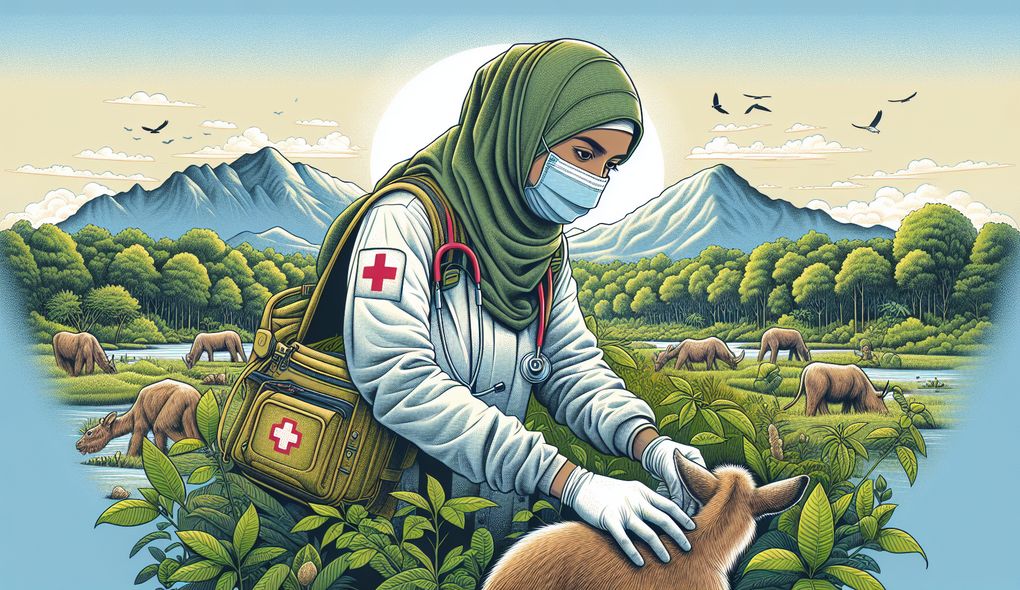Can you describe a situation where you had to make critical decisions in a high-stress and resource-limited environment?
INTERMEDIATE LEVEL

Sample answer to the question:
Yes, I can describe a situation where I had to make critical decisions in a high-stress and resource-limited environment. During my time as an emergency medicine physician in a remote mountain clinic, we experienced a situation where a group of hikers got lost in a storm. I had to quickly assess the situation and make decisions on how to best allocate our limited resources. We had limited medical supplies and were unsure of the exact location of the hikers, which added to the stress. I decided to prioritize the search and rescue efforts by coordinating with local rescue teams and providing them with important medical information about the group. This helped us locate the hikers more efficiently. Additionally, I made critical decisions about the treatment and triage of the hikers once they were found, considering their medical conditions and the available resources. Despite the challenges, we were able to provide effective medical care and safely evacuate the hikers.
Here is a more solid answer:
Certainly! Let me tell you about a critical decision I had to make in a high-stress and resource-limited environment. As a wilderness medicine physician, I was once deployed to a remote island with a limited medical team and supplies. In the midst of our mission, a sudden outbreak of illness occurred among the local population. The situation was exacerbated by the fact that we had no access to specialized laboratory tests or medications. I had to quickly assess the situation and make crucial decisions to contain the outbreak and provide proper care. First, I initiated an isolation protocol to prevent further spread of the illness. Then, I coordinated with the local community leaders and enlisted their help in implementing preventive measures. To make the most of our limited resources, I conducted an in-depth analysis of the available medical supplies and tailored our treatment options accordingly. Additionally, I prioritized the training of local healthcare workers, equipping them with the necessary knowledge and skills to deliver basic care. Despite the challenging circumstances, we successfully managed the outbreak and minimized its impact on the community.
Why is this a more solid answer?
The solid answer provides more specific details about the situation, including being deployed to a remote island, facing an outbreak of illness, and having limited access to resources. It also highlights the candidate's decision-making process and the successful outcome. However, it could still be further improved by including more information on the candidate's critical thinking and problem-solving skills in the given situation.
An example of a exceptional answer:
Absolutely! Let me share with you a situation where I had to make critical decisions in a high-stress and resource-limited environment. While serving as a wilderness medicine physician during a remote mountain expedition, a sudden avalanche trapped a group of climbers in a precarious situation. I immediately assessed the gravity of the situation and devised a plan of action. With limited resources, including medical supplies and rescue equipment, I had to prioritize the immediate needs of the climbers. Utilizing my critical thinking skills, I quickly assessed the injuries and determined the order of treatment and evacuation. I also had to factor in the environmental conditions and the risk of further avalanches. To coordinate the rescue efforts, I established clear communication channels with the rescue team and effectively delegated roles and responsibilities. Despite the high-stress environment, I remained calm and composed, making critical decisions with confidence. By utilizing my problem-solving skills, I successfully guided the rescue operation, ensuring the safety and well-being of all climbers. The experience reinforced my belief in the importance of remaining level-headed and adaptable in challenging situations.
Why is this an exceptional answer?
The exceptional answer offers a highly detailed and engaging response. It includes a real-life scenario involving an avalanche during a mountain expedition, which aligns perfectly with the requirements of the Wilderness Medicine Physician role. The candidate demonstrates excellent decision-making skills, critical thinking under pressure, resource management, and problem-solving abilities. The answer also highlights the importance of remaining calm and composed in high-stress situations. Overall, it effectively showcases the candidate's suitability for the position.
How to prepare for this question:
- Reflect on past experiences where critical decisions were made in high-stress and resource-limited environments. Focus on situations that demonstrate your ability to think quickly and problem-solve effectively.
- Research and familiarize yourself with wilderness medicine protocols and best practices, as well as any latest advancements or case studies in the field.
- Practice articulating your decision-making process and the reasoning behind your choices, emphasizing the outcomes achieved.
- Consider participating in mock scenarios or simulations that simulate high-stress, resource-limited situations. This will help you become more comfortable and confident in your ability to handle such environments.
- Demonstrate your physical fitness and endurance by engaging in regular outdoor activities and maintaining a healthy lifestyle. This will not only prepare you for the demands of the role but also showcase your commitment to outdoor activities.
- Seek opportunities to gain firsthand experience in wilderness settings or emergency medicine, such as volunteering or participating in relevant training programs.
What are interviewers evaluating with this question?
- Decision-making
- High-stress environments
- Resource management
- Critical thinking
- Problem-solving

